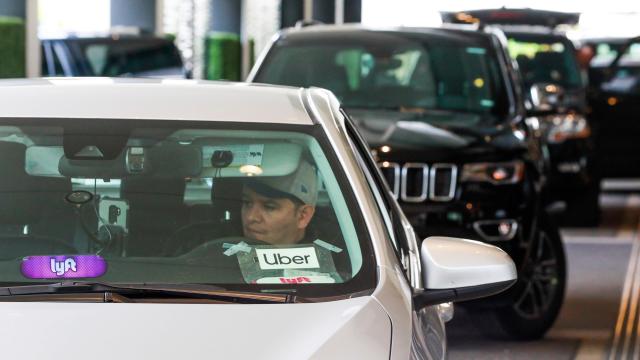There’s a well-funded heavyweight fight over potential EV tax credits brewing in California that is drawing the attention of some serious financial interests. A group of billionaires, mad about a proposed tax increase, is squaring off against a powerful ridesharing company over a ballot initiative that could open the door for more Californians to drive electric vehicles.
The well-financed tussle is over Proposition 30, a ballot initiative that’s slated to go in front of Californians for a vote this year. The proposition would raise income taxes for residents who make more than $US2 ($3) million a year by 1.75%. This increased tax rate would provide somewhere between $US3.5 ($5) billion and $US5 ($7) billion in extra cash — about 80% of which would go to various programs to incentivise the purchase of zero-emissions vehicles and build out private and public charging stations for those vehicles. The rest of the money would go toward wildfire response and prevention. California has dictated that all vehicles sold in the state be emissions-free by 2035, and helping consumers buy these vehicles now will go a long way to making that transition happen.
It would seem like someone who makes millions, literally, each year shouldn’t be too fussed about a less than 2% increase on their taxes — but there’s a whole bunch of Silicon Valley billionaires getting their panties in a twist about the possibility of having to pay more money to the government. As the San Francisco Chronicle reports, some of the country’s most powerful tech billionaires have helped raise an estimated $US14 ($19) million to campaign against the proposition.
The list of anti-Prop 30 funders, many of whom have net worths in the billions, includes Reed Hastings, the founder and CEO of Netflix, who is worth an estimated $US2 ($3).8 billion and has kicked $US1 ($1) million towards the opposition. (Earlier this year, in his commencement address at Stanford, Hastings told graduates that he was “confident your generation will find a way to invent our way out of the greenhouse” — seems like he’d rather shift climate solutions off to younger generations than to help pay for it himself.)
While $US14 ($19) million to fight a ballot initiative sounds like an awful lot of money, the pro-proposition contingent has a pretty powerful backer in its corner as well: ridesharing giant Lyft, which, the Chronicle reports, has to date spent more than $US45 ($62) million to back Proposition 30 and defend the measure against its billionaire opponents.
The proposal would be great news for rideshare services like Lyft. Services like Uber and Lyft based their business model around drivers providing their personal cars, saving the companies a hell of a lot of money in upfront costs. In 2018, rideshare companies made up 1% of California’s vehicle-related emissions, which are already a huge part of the state’s overall emissions; studies have shown that riders using services like Uber or Lyft ultimately generate far more emissions per ride than they would in private cars.
Uber, Lyft, and other rideshare companies have made big promises to reduce their emissions. This has been backed up by policy: in California, the state’s Air Resources Board passed a requirement last year to ratchet up EV use to 90% of all rideshare rides by 2030. But these companies face a challenge in how, exactly, to implement increased EVs in their fleets, when they do not technically own or control the cars involved in the equation. Statewide EV credits would be a huge advantage in helping more Lyft drivers access cleaner cars without a big change in the company’s profitable business model.
It’s an odd assortment of opponents here: on one hand, a giant rideshare company that has a significant history of problematic labour behaviour, trying to save money on its business model and squaring off against billionaires who are pissy that they may have to pay more taxes. At the end of the day, it’s crucial that Californians of all income levels get access to EVs — it’s just a wild fight to watch play out in Silicon Valley.
